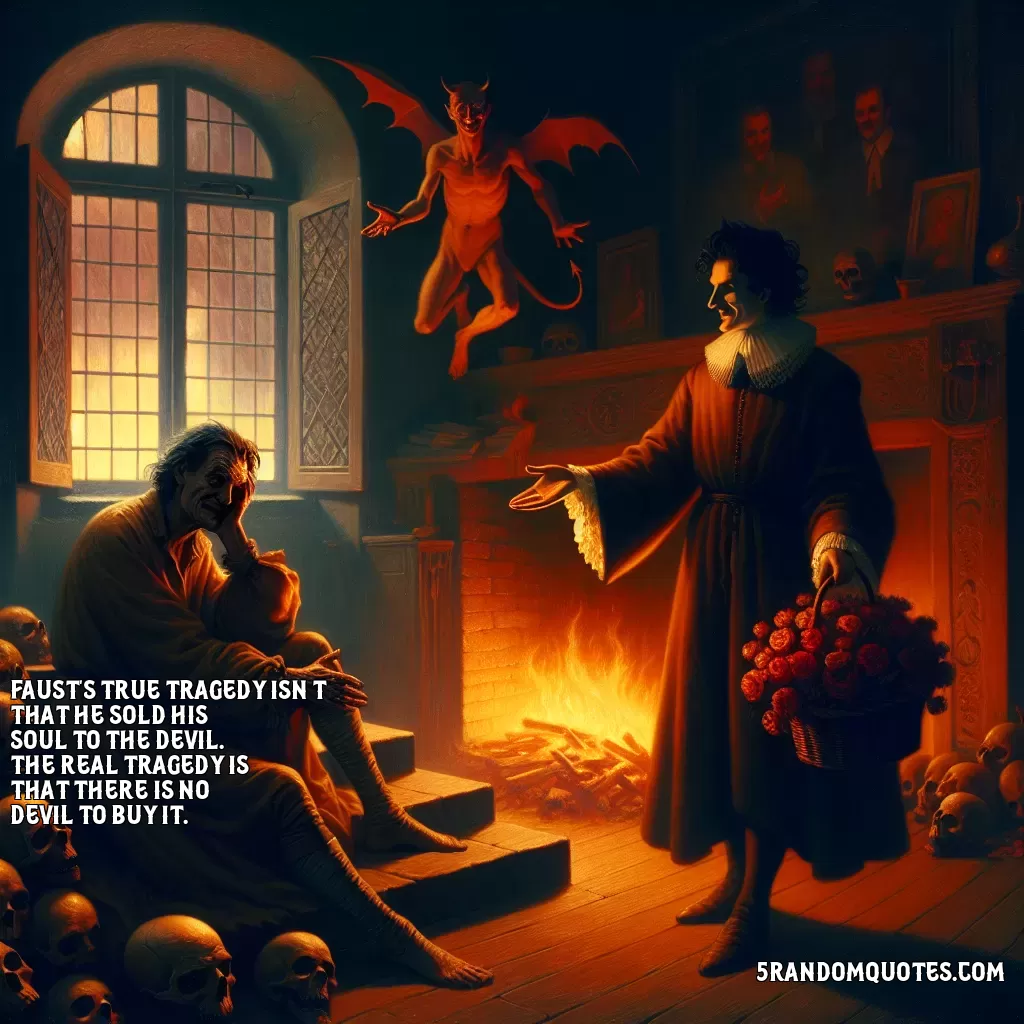
Faust's true tragedy isn’t that he sold his soul to the devil. The real tragedy is that there is no devil to buy it.
Author: Thomas Merton
👁️ 30 views

Faust's true tragedy isn’t that he sold his soul to the devil. The real tragedy is that there is no devil to buy it.
👁️ 30 views
This quote suggests that the true tragedy of Faust's story lies not in the act of making a deal with the devil, but rather in the realization that such a bargain is ultimately meaningless. Faust's search for fulfillment and purpose leads him to believe he can trade his soul for knowledge and power. However, the implication that there is "no devil to buy it" highlights a deeper existential crisis: the idea that in the end, there may be no ultimate authority or morality to validate his sacrifice. This reflects on the futility of seeking external validation or ultimate truth through superficial means, leaving Faust—and humanity—confronting the emptiness of such pursuits. It emphasizes the theme of disillusionment and the internal struggle to find genuine meaning in life, rather than relying on external forces or shortcuts.
Quote By: Thomas Merton
Thomas Merton (1915-1968) was an American Trappist monk, writer, theologian, and pacifist, widely recognized for his influential works on spirituality and social justice. Living at the Abbey of Gethsemani in Kentucky, Merton authored more than 70 books, including the acclaimed "The Seven Storey Mountain," which reflects on his journey to faith and the monastic life. His writings have inspired countless readers and seekers, bridging the gap between Eastern and Western spiritual traditions.
Bio added on: 2025-02-18 15:39:18